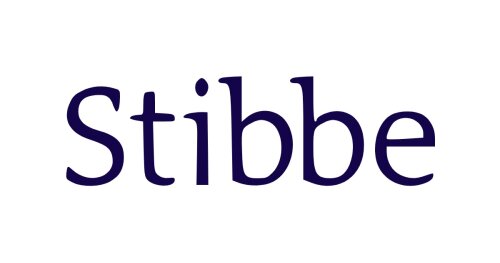Best Debt & Collection Lawyers in Luxembourg
Share your needs with us, get contacted by law firms.
Free. Takes 2 min.
Or refine your search by selecting a city:
List of the best lawyers in Luxembourg
About Debt & Collection Law in Luxembourg
Debt & Collection law in Luxembourg is governed by a mix of EU regulations and national legislation. This area of law deals with the rights and obligations of creditors and debtors in the context of unpaid debts. The Luxembourg legal system provides structured procedures for debt recovery, while also ensuring the protection of debtor rights. These mechanisms include judicial authority over debt collection matters, insolvency proceedings, and collective debt settlements. Given Luxembourg's status as a financial hub, the regulations are designed to maintain investor confidence and financial stability while balancing justice for all involved parties.
Why You May Need a Lawyer
There are numerous situations where individuals or businesses may require legal assistance in the realm of debt and collection. These include:
- Unpaid invoices or loans requiring collection actions.
- Negotiation of repayment terms or settlements with creditors.
- Challenging unfair or aggressive debt collection practices.
- Understanding and navigating bankruptcy or insolvency procedures.
- Defending against lawsuits filed by creditors.
- Ensuring compliance with Luxembourg and EU regulations if you are a creditor seeking debt recovery.
- Dealing with cross-border debt recovery issues involving parties in different jurisdictions.
Local Laws Overview
Key aspects of Luxembourg's local laws concerning Debt & Collection include:
- Judicial debt recovery is typically initiated through a demand for payment followed by court proceedings if the debt remains unpaid.
- Interest on unpaid debts is regulated by law, ensuring fair compensation to creditors while protecting debtors from excessive charges.
- Bankruptcy laws provide structured insolvency processes, aiming to balance debtor and creditor rights and, when possible, allow for the rehabilitation of financially distressed debtors.
- Luxembourg enforces EU regulations pertinent to cross-border debt recovery, providing mechanisms such as the European Payment Order for simplified procedures.
- Consumer protection laws safeguard individuals from abusive collection practices, mandating transparency and fairness in creditor dealings.
Frequently Asked Questions
What should I do if I receive a debt collection notice in Luxembourg?
Contact the sender to verify the claim's validity and attempt to negotiate a repayment solution. If necessary, consult a lawyer for advice on your rights and obligations.
Can creditors contact me directly at my workplace?
Yes, but they must respect privacy and cannot use harassing or threatening behavior. Familiarize yourself with Luxembourg's consumer protection laws, or seek legal advice if you feel harassed.
How long does the debt recovery process take?
Timelines vary based on the complexity of the case, the debtor's cooperation, and court schedules, but they can range from a few months to several years.
Can I dispute a debt claim?
Yes, you have the right to contest a debt claim if you believe it is incorrect or unjust. Present your evidence to the creditor or during legal proceedings.
Is mediation available for debt disputes?
Yes, mediation can be an effective way to resolve disputes amicably without going to court. It’s often quicker and less costly.
What happens if I'm unable to pay off my debt?
If you’re unable to repay, you might face legal actions such as garnishment of wages or insolvency proceedings. Consult a lawyer to explore options like debt restructuring or settlement.
Are there consequences for missing a payment deadline even once?
Yes, penalties such as late fees, increased interest rates, or impacts on credit score might be imposed. Review your loan agreement for specific terms.
What are my rights if a creditor is harassing me?
Luxembourg law protects debtors from harassment. Document all interactions and report abusive practices to either legal authorities or a lawyer.
Can foreign debts be collected in Luxembourg?
Yes, through EU mechanisms like the European Payment Order which allows for cross-border debt recovery under streamlined processes.
Is it possible to negotiate a debt after a court judgment?
Yes, negotiation remains possible even after a judgment has been reached. Legal counsel can help in restructuring payment plans or settling debts post-judgment.
Additional Resources
If you're seeking further information or assistance, consider reaching out to the following resources:
- Luxembourg Consumer Protection Office for advice on rights and protections.
- The Ministry of Justice of Luxembourg for general legal information and resources.
- The Chamber of Commerce for support regarding business-related debts.
- Legal aid services for individuals requiring financial assistance to procure legal advice.
Next Steps
If you require legal assistance in Debt & Collection, begin by gathering all relevant documents and facts related to your case. Contact a lawyer specializing in debt and collection law to discuss your circumstances. Many lawyers offer an initial consultation to outline options and potential next steps. Consider contacting the Luxembourg Bar Association for a list of qualified legal practitioners. It's essential to act promptly, especially if legal deadlines or time-sensitive actions are involved.
Lawzana helps you find the best lawyers and law firms in Luxembourg through a curated and pre-screened list of qualified legal professionals. Our platform offers rankings and detailed profiles of attorneys and law firms, allowing you to compare based on practice areas, including Debt & Collection, experience, and client feedback.
Each profile includes a description of the firm's areas of practice, client reviews, team members and partners, year of establishment, spoken languages, office locations, contact information, social media presence, and any published articles or resources. Most firms on our platform speak English and are experienced in both local and international legal matters.
Get a quote from top-rated law firms in Luxembourg — quickly, securely, and without unnecessary hassle.
Disclaimer:
The information provided on this page is for general informational purposes only and does not constitute legal advice. While we strive to ensure the accuracy and relevance of the content, legal information may change over time, and interpretations of the law can vary. You should always consult with a qualified legal professional for advice specific to your situation.
We disclaim all liability for actions taken or not taken based on the content of this page. If you believe any information is incorrect or outdated, please contact us, and we will review and update it where appropriate.
Browse debt & collection law firms by city in Luxembourg
Refine your search by selecting a city.















